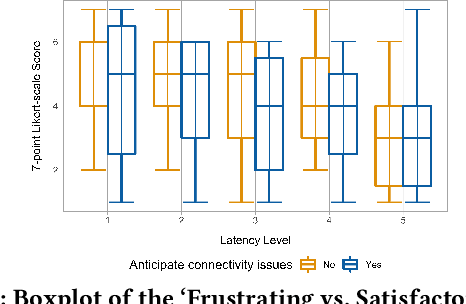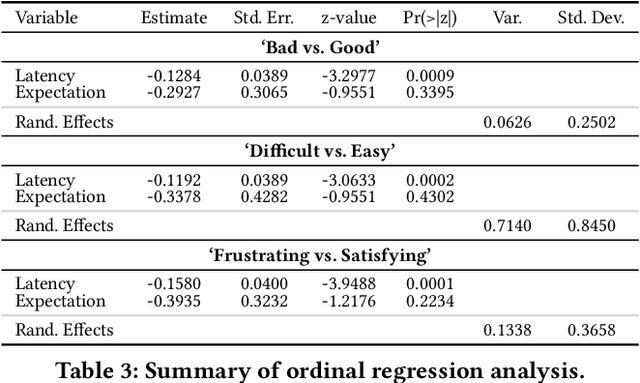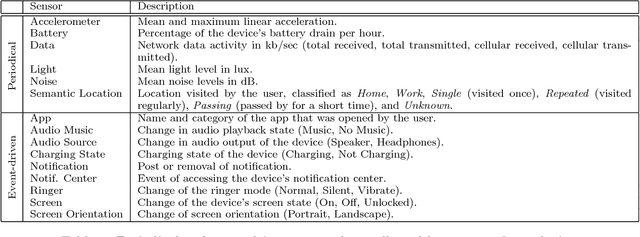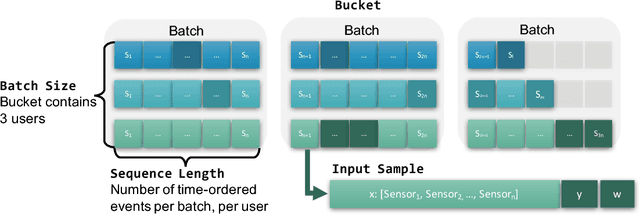Martin Pielot
Impact of Response Latency on User Behaviour in Mobile Web Search
Jan 22, 2021



Abstract:Traditionally, the efficiency and effectiveness of search systems have both been of great interest to the information retrieval community. However, an in-depth analysis of the interaction between the response latency and users' subjective search experience in the mobile setting has been missing so far. To address this gap, we conduct a controlled study that aims to reveal how response latency affects mobile web search. Our preliminary results indicate that mobile web search users are four times more tolerant to response latency reported for desktop web search users. However, when exceeding a certain threshold of 7-10 sec, the delays have a sizeable impact and users report feeling significantly more tensed, tired, terrible, frustrated and sluggish, all which contribute to a worse subjective user experience.
Practical Processing of Mobile Sensor Data for Continual Deep Learning Predictions
May 17, 2017



Abstract:We present a practical approach for processing mobile sensor time series data for continual deep learning predictions. The approach comprises data cleaning, normalization, capping, time-based compression, and finally classification with a recurrent neural network. We demonstrate the effectiveness of the approach in a case study with 279 participants. On the basis of sparse sensor events, the network continually predicts whether the participants would attend to a notification within 10 minutes. Compared to a random baseline, the classifier achieves a 40% performance increase (AUC of 0.702) on a withheld test set. This approach allows to forgo resource-intensive, domain-specific, error-prone feature engineering, which may drastically increase the applicability of machine learning to mobile phone sensor data.
* 6 pages, 3 figures, 3 tables
 Add to Chrome
Add to Chrome Add to Firefox
Add to Firefox Add to Edge
Add to Edge